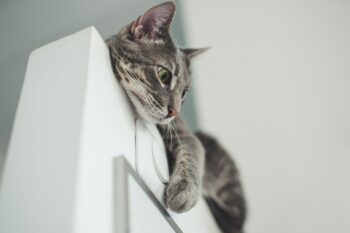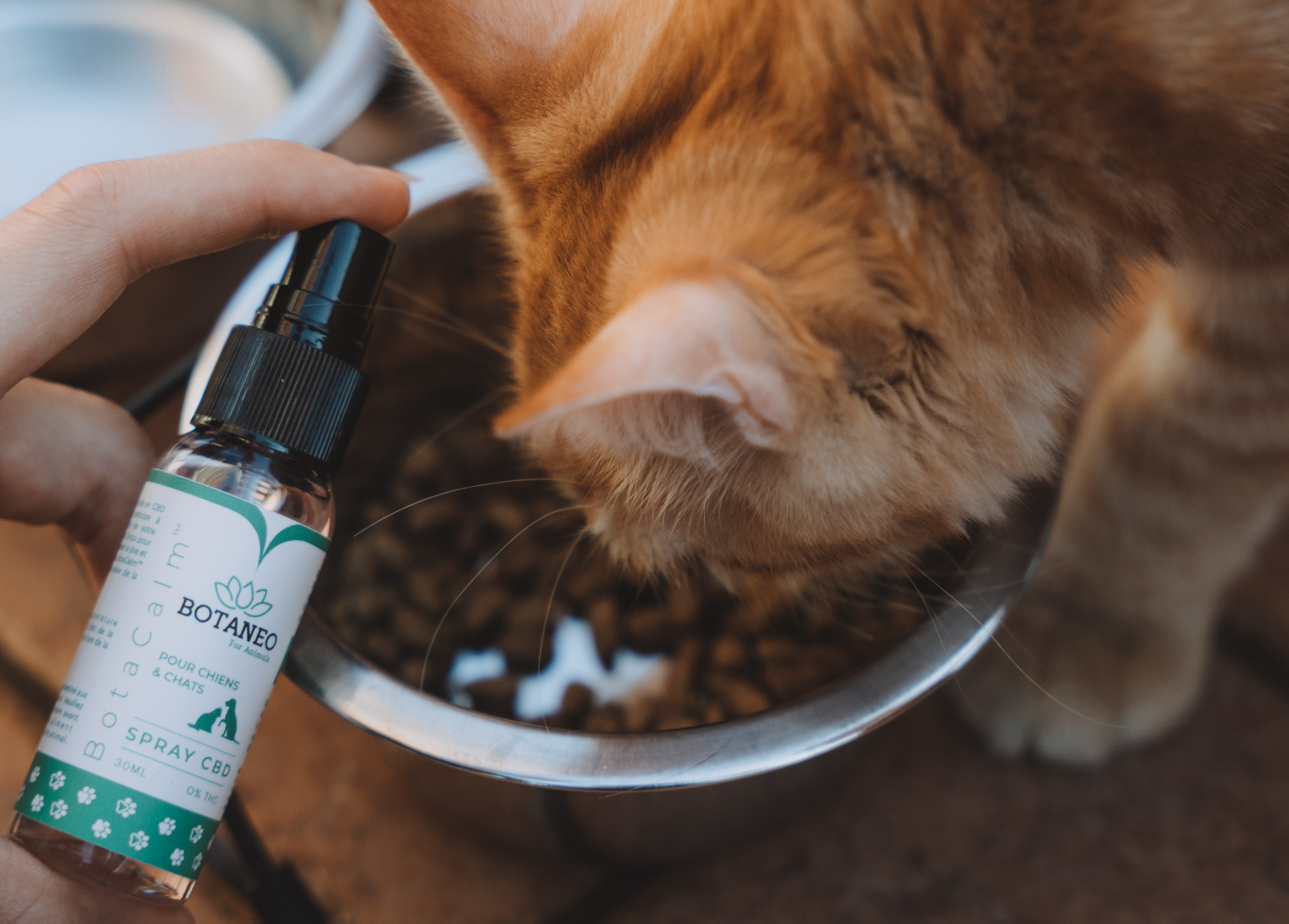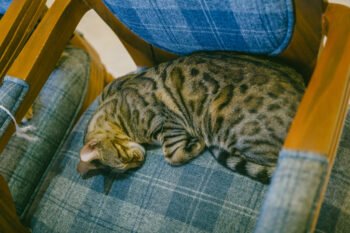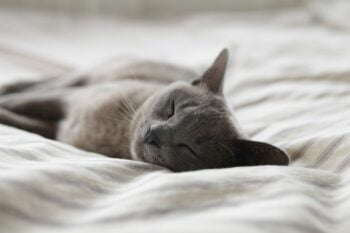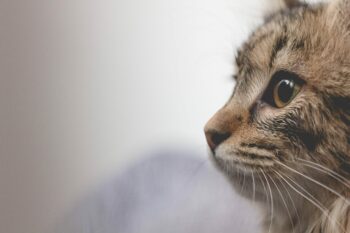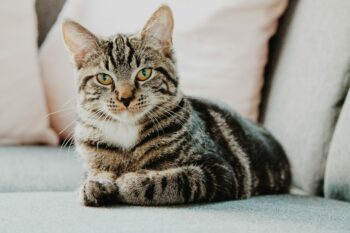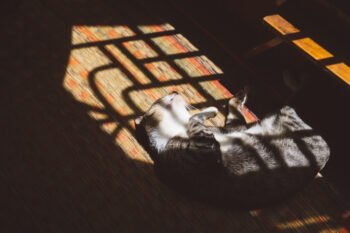Horses have it. Birds, fish and even mollusks do too. The “it” is personality, something that both you and your cat radiate nearly every waking moment. But exactly what is personality, does this people-centric term applies to non-human animals and can it be changed?
“Personality is a complex of behavioral traits that go together without obvious reason,” says Sander van Doorn, PhD, a researcher at the Santa Fe Institute in New Mexico and one of the world’s leading experts on the evolution of personality in animals. He says such traits are what help to characterize uniqueness among individuals. In other words, no two cats or humans — not even among identical twins — think and behave exactly alike.
Evidence for Personality in Animals
Dr. van Doorn and his colleagues have studied various animals, birds and insects over the years. They’ve determined most provable critter characteristics fall under two sets of descriptions: risk prone and risk adverse, and flexible and rigid. Risk prone people and animals tend to be bold, brazen and relatively fearless. Risk adverse individuals are the opposite, acting wary and timid under the many situations they perceive as threatening.
Flexible people and cats are easy-going and have somewhat malleable characters under certain circumstances. For example, a flexible feline may not mind a change of toys or scenery, but a more rigid cat or person is clearly set in its ways and habits.
Tanya Williams, cat caretaker at the Humane Society of Southeast Texas in Beaumont, knows the various feline types well. “We have a sweet cat named Lydia up for adoption who is so loving and non-aggressive,” Williams says. “She loves attention and is very quiet and mellow.”
“Then we have another cat, which we named Alien Baby,” she adds. “As soon as you open his cage, he jumps on you. He’s full of energy and needs to be loved in his own way. He likes to be hugged a lot.”
What Creates Personality?
According to Dr. van Doorn and other scientists who have studied personality, differences in character and temperament seem to emerge from three different sources:
Genetic. All creatures born of a mother and father emerge into the world with unique sets of DNA. This is the cellular material that carries information to “program” our tissue growth, hormones, brain activity and all bodily happenings. Identical twin humans or kittens have identical genes.
Environmental. The location and conditions under which you and your cat were raised and now live also can affect personality, the researchers have determined. For example, a cat living under stressful conditions might develop fears that a feline lounging in a literal lap of luxury might not develop.
Social. Then there are the moment to moment factors that seem to shape our characters. Dr. van Doorn attributes some of these to status and breeding position changes. “Hover wasp males at the bottom of their breeding hierarchy tend to be more aggressive,” he says. “If they rise to the top, gaining more responsibility and having more to lose, they become more risk adverse.” In cats, a similar phenomenon happens to pregnant females. An otherwise carefree female feline might settle down more when she has kittens. People do this too, when they settle into stable relationships and/or start a family.
Different Breeds, Different Personalities
Because selective breeding helps to control the spread and exchange of genes, domesticated animals, like cats, dogs and horses, often exhibit personality traits linked to their breed. Here are a few identifiable characteristics among select cat breeds, as compiled by the Humane Society of Southeast Texas:
American shorthair: easy-going, companionable
Angora: adaptable, loyal
Bombay: quiet, easy-going, likes frequent petting
Maine coon: active, flexible
Manx: affectionate, smart
Persian: loving, companionable, quiet
Russian blue: companionable, gentle, affectionate
Siamese: high maintenance, smart, active, very social
How to Bring Out the Best in Your Cat
Since environmental and social cues help to shape personality, in many instances you contribute to molding your cat’s character. Here are six ways you can help guide your feline into becoming the best it can be:
- Look for the signs You needn’t have a doctoral degree in genetics to understand your feline’s inherited disposition. Pay attention to how your cat reacts under daily circumstances, especially potentially threatening ones. For example, does it run for its life when company comes over, or go crazy when you take it to the veterinarian? If so, you probably have a risk adverse feline. A risk prone kitty might still be stressed under such situations, but it would perhaps growl at the veterinarian or stand its ground with your guests.
- Be patient “Cats need time to adjust,” says Williams. “You never want to rush them into behaving a certain way.” If you’ve just brought home a new kitty, for example, and it seems fearful and timid, give it a comforting, safe retreat, which could just be its carrier, and let it come out in its own good time.
- Create a nurturing environment Good food, a soothing place to rest and sleep, a tidy, private “bathroom,” moments of quiet, and a clean bill of health can work wonders. If your cat doesn’t have to worry about any of these basic needs, the stage is set for its true character to shine through.
- Give them love, attention and regular playtimes “All cats need to be loved, says Williams.” Providing affection and attention usually comes back to the giver. If you gently rub and stroke your cat, for example, it will likely adoringly brush up against you too. Regular playtimes also are essential, as they provide good physical, as well as mental, exercise.
- Keep in mind the “mini me” effect Since you and your cat share the same environment and often interact with each other, your cat may actually start to take on some of your personality traits! So the next time your feline gets on your nerves, think to yourself, “Could it have picked this trait up from me?”
- Acceptance is key At some point you may have to “let go and let cat.” “It is difficult, or even impossible, to change some traits that are genetically determined,” van Doorn says. The beauty of such DNA imprinting is that it helps to explain all of the diversity among the world’s creatures. Celebrate your cat’s personality, and even its odd little eccentricities. They contribute to making your pet a one of a kind, true individual.

